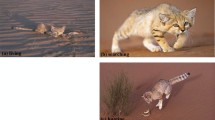Abstract
This paper proposes an adaptive chaos quantum honey bee algorithm (CQHBA) for solving chance-constrained programming in random fuzzy environment based on random fuzzy simulations. Random fuzzy simulation is designed to estimate the chance of a random fuzzy event and the optimistic value to a random fuzzy variable. In CQHBA, each bee carries a group of quantum bits representing a solution. Chaos optimization searches space around the selected best-so-far food source. In the marriage process, random interferential discrete quantum crossover is done between selected drones and the queen. Gaussian quantum mutation is used to keep the diversity of whole population. New methods of computing quantum rotation angles are designed based on grads. A proof of convergence for CQHBA is developed and a theoretical analysis of the computational overhead for the algorithm is presented. Numerical examples are presented to demonstrate its superiority in robustness and stability, efficiency of computational complexity, success rate, and accuracy of solution quality. CQHBA is manifested to be highly robust under various conditions and capable of handling most random fuzzy programmings with any parameter settings, variable initializations, system tolerance and confidence level, perturbations, and noises.
Similar content being viewed by others
References
B. Liu Theory and Practice of Uncertain Programming, Heidelberg, Germany: Physica-Verlag, pp. 78–81, 2002.
B. Liu. Random fuzzy dependent-chance programming and its hybrid intelligent algorithm. Information Sciences, vol. 141, no. 3–4, pp. 259–271, 2002.
Y. K. Liu, B. Liu. Expected value operator of random fuzzy variable and random fuzzy expected value models. International Journal of Uncertainty, Fuzziness, and Knowledge-based Systems, vol. 11, no. 2, pp. 195–215, 2003.
T. D. Seeley. The Wisdom of the Hive: The Social Physiology of Honey Bee Colonies, Cambridge, Massachusetts, USA: Harvard University Press, pp. 54–63, 1996.
H. A. Abbass. Marriage in honey bees optimization (MBO): A haplometrosis polygynous swarming approach. In Proceedings of Congress on Evolutionary Computation, Seoul, Korea, pp. 207–214, 2001.
H. A. Abbass. A single queen single worker honey-bees approach to 3-SAT. In Proceedings of the Genetic and Evolutionary Computation Conference, San Francisco, California, USA, pp. 807–814, 2001.
J. Teo, H. A. Abbass. An Annealing Approach to the Mating — Flight Trajectories in the Marriage in Honey Bees Optimization Algorithm, Technical Report CS04/01, School of Computer Science, University of New South Wales at ADFA, Australia, 2001.
B. Basturk, D. Karaboga. An artificial bee colony (ABC) algorithm for numeric function optimization. In Proceedings of IEEE Swarm Intelligence Symposium, Indianapolis, USA, 2006.
D. Karaboga, B. Basturk. A powerful and efficient algorithm for numerical function optimization: Artificial bee colony (ABC) algorithm. Journal of Global Optimization, vol. 39, no. 3, pp. 459–471, 2007.
P. S. Oliveto, J. He, X. Yao. Time complexity of evolutionary algorithms for combinatorial optimization: A decade of results. International Journal of Automation and Computing, vol. 4, no. 3, pp. 281–293, 2007.
E. Zou, X. F. Li, J. G. Chen. Applications of Chaos Control and Optimization, Changsha, PRC: National University of Defense Technology Press, pp. 34–45, 2002. (in Chinese)
J. E. C. Wang, Y. Wang, J. Cong. A new adaptive mutative scale chaos optimization algorithm and its application. Journal of Control Theory and Applications, vol. 6, no. 2, pp. 141–145, 2008.
S. C. Kak. On quantum neural computing. Information Sciences, vol. 83, no. 3–4, pp. 143–160, 1995.
R. Chrisley. Quantum learning. In Proceedings of International Symposium on New Directions in Cognitive Science, Finnish AI Society, Lapland, pp. 77–89, 1995.
A. Narayanan, M. Moore. Quantum-inspired genetic algorithm. In Proceedings of IEEE International Conference on Evolutionary Computation, IEEE, Piscataway, USA, pp. 61–66, 1996.
S. Y. Yang, L. C. Jiao. The quantum evolutionary programming. In Proceedings of the 5th International Conference on Computational Intelligence and Multimedia App1ications, IEEE, pp. 362–367, 2003.
K. Von Frisch. The Dance Language and Orientation of Bees, Cambridge, Massachusetts, USA: Harvard University Press, 1993.
Author information
Authors and Affiliations
Corresponding author
Additional information
This work was supported by National High Technology Research and Development Program of China (863 Program) (No. 2007AA041603), National Natural Science Foundation of China (No. 60475035); Key Technologies Research and Development Program Foundation of Hunan Province of China (No. 2007FJ1806); Science and Technology Research Plan of National University of Defense Technology (No.CX07-03-01), Top Class Graduate Student Innovation Sustentation Fund of National University of Defense Technology (No.B070302.)
Han Xue received the M. Sc. degree from National University of Defense Technology, PRC in 2007. She is currently a Ph.D. candidate at the College of Electromechanical Engineering and Automation, National University of Defense Technology.
Her research interests include robotics and automation, especially the swarm intelligence.
Xun Li received the Ph.D. degree from National University of Defense Technology, PRC in 2001. He is currently an associate professor at the College of Electromechanical Engineering and Automation, National University of Defense Technology.
His research interest includes embedded system, especially the wireless sensor networks.
Hong-Xu Ma received the Ph.D. degree from National University of Defense Technology, PRC in 1995. He is currently a professor at the College of Electromechanical Engineering and Automation, National University of Defense Technology.
His research interests include robotics and automation, especially the humanoid control.
Rights and permissions
About this article
Cite this article
Xue, H., Li, X. & Ma, HX. Random fuzzy chance-constrained programming based on adaptive chaos quantum honey bee algorithm and robustness analysis. Int. J. Autom. Comput. 7, 115–122 (2010). https://doi.org/10.1007/s11633-010-0115-6
Received:
Revised:
Published:
Issue Date:
DOI: https://doi.org/10.1007/s11633-010-0115-6




